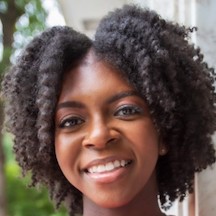The Latest Cohort of L’Oreal For Women in Science Fellows
Posted on Jan 18, 2024 | Comments 0
 L’Oreal USA recently announced the recipients of its For Women in Science (FWIS) Fellowship program, which grants awards annually to five female postdoctoral scientists to support their research endeavors. This year marks L’Oréal USA’s 20th anniversary of helping to advance women in STEM fields through its FWIS program, which has provided more than $5 million in grants to support the work of innovative women scientists.
L’Oreal USA recently announced the recipients of its For Women in Science (FWIS) Fellowship program, which grants awards annually to five female postdoctoral scientists to support their research endeavors. This year marks L’Oréal USA’s 20th anniversary of helping to advance women in STEM fields through its FWIS program, which has provided more than $5 million in grants to support the work of innovative women scientists.
Here are brief looks at the research of the five winners:
 Bria Macklin‘s research in data science and biotechnology at the Gladstone Institutes in San Francisco focuses on how to improve current gene editing strategies for genetic diseases that affect motor neurons. Successful gene therapies have the potential to change lives, and many genetic diseases are currently uncurable. Her research has the potential to generate new cures.
Bria Macklin‘s research in data science and biotechnology at the Gladstone Institutes in San Francisco focuses on how to improve current gene editing strategies for genetic diseases that affect motor neurons. Successful gene therapies have the potential to change lives, and many genetic diseases are currently uncurable. Her research has the potential to generate new cures.
 Taylor Medwig-Kinney‘s research in biology at the University of North Carolina at Chapel Hill focuses on how cells change shape during development, using microscopic worms called C.elegans that allow her to observe cells changing shape in real time. Studying this can help understand when this process goes wrong in humans, which can lead to conditions such as spina bifida.
Taylor Medwig-Kinney‘s research in biology at the University of North Carolina at Chapel Hill focuses on how cells change shape during development, using microscopic worms called C.elegans that allow her to observe cells changing shape in real time. Studying this can help understand when this process goes wrong in humans, which can lead to conditions such as spina bifida.
 Joscelyn Mejías conducts research in biomedical engineering at John Hopkins University in Baltimore that focuses on studying uterine fibroids, a non-cancerous but painful tumor of the uterus that can impact fertility. Uterine fibroids are extremely common, yet not well understood. She hopes her research will lead to new and better treatment options for targeting uterine fibroids and fibrosis.
Joscelyn Mejías conducts research in biomedical engineering at John Hopkins University in Baltimore that focuses on studying uterine fibroids, a non-cancerous but painful tumor of the uterus that can impact fertility. Uterine fibroids are extremely common, yet not well understood. She hopes her research will lead to new and better treatment options for targeting uterine fibroids and fibrosis.
 Jessleen Kanwal is conducting research in biology and biological engineering at the California Institute of Technology that focuses on how animals interact adaptively with other organisms, focusing on the rove beetle species to understand how it uses sensory cues that are critical for survival. Understanding this in the beetle brain can help identify core functions of the human brain to identify when we’re aging and where our ability to combine the senses and interact with others starts to decline.
Jessleen Kanwal is conducting research in biology and biological engineering at the California Institute of Technology that focuses on how animals interact adaptively with other organisms, focusing on the rove beetle species to understand how it uses sensory cues that are critical for survival. Understanding this in the beetle brain can help identify core functions of the human brain to identify when we’re aging and where our ability to combine the senses and interact with others starts to decline.
 Caitlin Kowalski‘s research in microbiology at the University of Oregon focuses on how the fungi that live on our bodies can help protect humans from infection. There is very little known about how host-associated fungi contribute to human health, and her work emphasizes the importance of considering fungi as a resource to identify new antibiotics.
Caitlin Kowalski‘s research in microbiology at the University of Oregon focuses on how the fungi that live on our bodies can help protect humans from infection. There is very little known about how host-associated fungi contribute to human health, and her work emphasizes the importance of considering fungi as a resource to identify new antibiotics.
Filed Under: Awards








